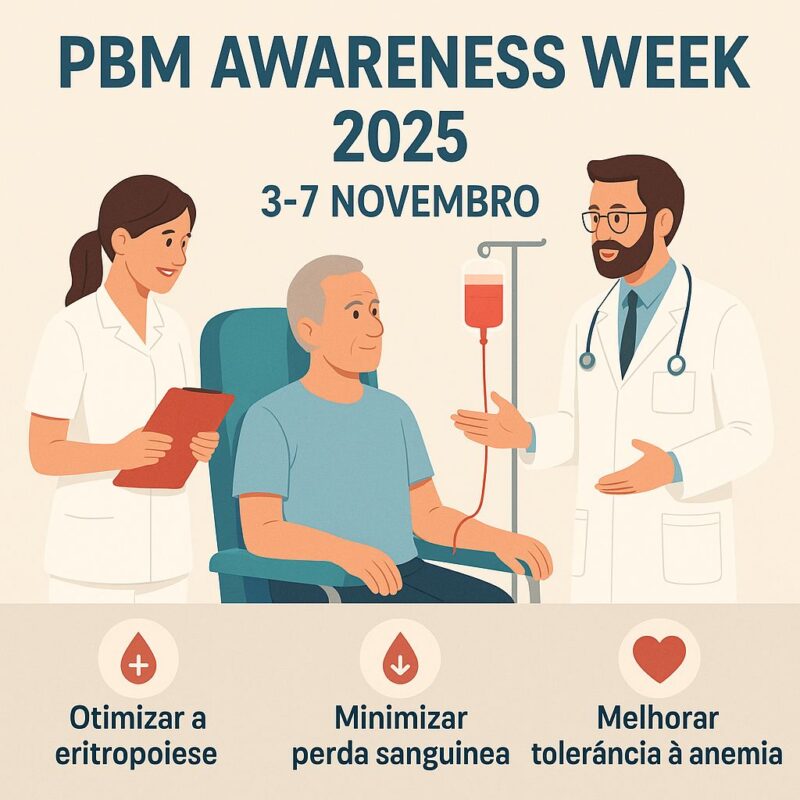
David Ferreira Shares 3 Pillars of Patient Blood Management
David Ferreira, Director of the Immuno-hemotherapy Service at ULSGE at Gaia and Espinho Local Health Unit, shared on LinkedIn:
”Patient Blood Management (PBM) is a structured clinical approach that seeks to optimize the patient’s hematological status, reduce avoidable blood loss, and ensure that transfusions are only used when truly necessary.
Its strength comes from these three pillars:
- Optimize erythropoiesis — Diagnose and treat anemia before invasive procedures or in chronic patients;
- Minimize blood loss — Surgical, anesthetic, and laboratory strategies with less waste;
- Improve tolerance to anemia — Make individualized transfusion decisions, avoiding unnecessary transfusions.
The benefits are clear:
- Fewer avoidable transfusions
- Fewer complications
- Better recovery
- Responsible use of a scarce resource
At the Gaia and Espinho Local Health Unit, even in a context of great pressure on the Immuno-Hemotherapy Service, we hold regular PBM consultations every week, reinforcing our commitment to our patients.
This work is only possible thanks to the dedication of our medical and nursing teams in our small Day Hospital, who ensure a continuous and technically demanding response.
PBM is not just a technique—it is a culture of safety, quality, and respect for patients and donors.
And it lives on at ULSGE.
We continue, with rigor and resilience.”

Stay updated with Hemostasis Today.
-
Feb 26, 2026, 12:05Anirban Sen Gupta: PlateChek Links Platelet Status to Hemostasis Outcomes in Whole Blood
-
Feb 25, 2026, 16:47Alan Nurden: Platelet Defects Explain Bleeding in EHDS Patients
-
Feb 25, 2026, 16:40Mohammed Almohammadi: Uniting Leaders in Laboratory Hematology at the 1st Saudi ISLH Joint Conference
-
Feb 25, 2026, 16:37Salihu Asimawu: Inflammation Is Not a Disease – Hats Off to the Heroes Inside Us
-
Feb 25, 2026, 16:34Michael Makris: Biomarin Has Decided to Withdraw Roctavian from the Market
-
Feb 25, 2026, 16:25Tagreed Alkaltham: The Blood Banker Personality
-
Feb 25, 2026, 16:17Sanjay Ahuja: Insightful Talk on 100 Years of VWD by Jorge Di Paola
-
Feb 25, 2026, 15:20Michael Shapiro։ Creating Real Pathways for Trainees in Preventive Cardiology
-
Feb 25, 2026, 15:15Ajay Kumar: Plasma Component Quality Control Standards

